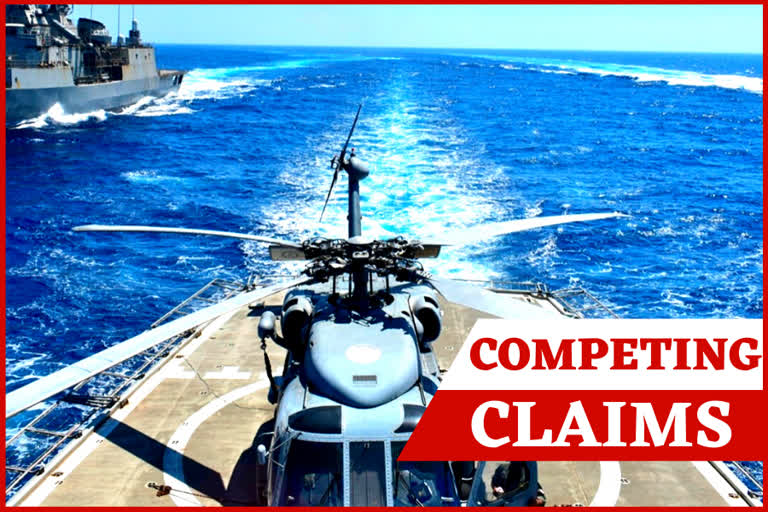Ankara: Turkey and Greece have locked horns over energy exploration rights in the Eastern Mediterranean.
The dispute- Energy exploration rights
To the alarm of western allies, both countries sent warships to shadow each other this month in an area between Creteand Cyprus where Turkey has a vessel prospecting for potential gas and oil deposits. The Greek and Turkish militaries both engaged in exercises within that part of the sea on Tuesday.
Turkey-Greece dispute over energy exploration rights The Turkish vessel Oruc Reis has for weeks been carrying out seismic research escorted by warships. Athens said that the ship is operating over Greece's continental shelf in an area where it has exclusive rights on potential undersea gas and oil deposits, sent warships to observe and track the Turkish flotilla.
Read also:Turkish ship starts energy search amid standoff with Greece
Turkey disputes Greece’s claims, insisting that small Greek islands near the Turkish coast should not be taken into account when delineating maritime boundaries. Ankara accused Athens of trying to grab an unfair share of the eastern Mediterranean’s resources.
Turkey, Greece stick to their guns in escalating Med dispute Turkey is also prospecting for hydrocarbons in waters where Cyprus claims exclusive economic rights.
Athens abandoning passive foreign policy
Prime Minister Kyriakos Mitsotakis said Greece is planning to exercise its legal right to extend its territorial waters along its western coastline, which faces Italy, from six to 12 nautical miles.
The planned extension would not affect the territory at the center of the Greek-Turkish dispute. But the prime minister told parliament that Greece was abandoning decades of “passive” foreign policy. Turkey has warned in the past that an extension of Greek waters to 12 nautical miles in the Aegean Sea, facing the Turkish littoral, would be seen as a reason to declare war on Greece.
Read also:Erdogan is openly calling for re-establishment of caliphate in Turkey
Mitsotakis, speaking in parliament, described Turkey's actions as “illegal and provocative” but added that Athens was willing to start talks with Ankara as part of a German-brokered initiative — only if the Turkish seismic surveying work were halted. “Our position is crystal clear and can be summarized in six words: When provocations stop, talks can start,” he said during a debate on the ratification of deals Greece recently made with Italy and Egypt setting out maritime boundaries and Exclusive Economic Zones. Greece’s deal with Egypt in particular has drawn the ire of Turkey.
Erdogan's claim
“Turkey will take what is its right in the Mediterranean, in the Aegean and in the Black Sea,” Turkish President Recep Tayyip Erdogan said. “Just as we have no eyes (on) anyone’s territory, sovereignty and interests, we will never compromise on what belongs to us. We are determined to do whatever is necessary in political, economic and military terms.”
Erdogan’s tough words came despite mediation efforts by Germany, whose foreign minister conducted shuttle diplomacy between Athens and Ankara a day earlier.
“Everyone must see that Turkey is not a country whose patience can be tried, whose determination, capabilities and courage can be tested. If we say we’ll do something we’ll do it and pay the price.,” Erdogan said Wednesday. "If anyone wants to stand before us and face the consequences, they are welcome to. If not, stay out of our way and we will continue with our work.”
The Trump call
Mitsotakis' office said that US President Donald Trump phoned the Greek prime minister Wednesday night “to discuss the recent developments in the southeastern Mediterranean.”
During the call, Mitsotakis “raised the issue of the destabilizing actions of Turkey that endanger peace and stability in the broader region and test the cohesion of NATO,” his office said.
Greece, he said, was prepared to contribute to de-escalating the situation “on condition Turkey immediately stops its provocative acts.”
With inputs from agencies
